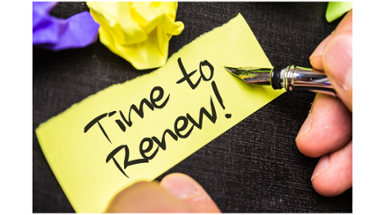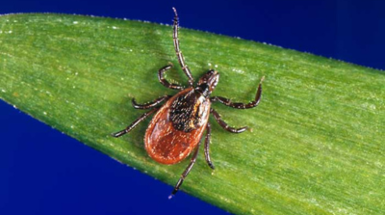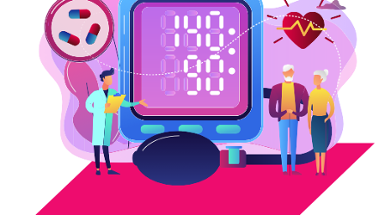What to expect during and after your vaccination?
When you get vaccinated:
- Protect yourself when you are going to your appointment. Wear a face mask that covers your nose and mouth and stay 6 feet away from others while inside, in line, or elsewhere.
- Arrive on time to your appointment. Many vaccine sites will not allow you on the premises until 15-30 minutes prior to your appointment to allow for proper distancing. If you arrive early be prepared to wait outside or in your car.
- If you have COVID-19 or COVID-19 symptoms or think you might have been exposed to COVID-19, notify the healthcare provider before your visit and follow instructions. You may need to reschedule after your isolation or quarantine days are over.
-
Bring identification with you: The vaccine provider will need identification to verify your identity, name, and age. You do not need to show proof of citizenship or residency status. Your identification will still be accepted if it is expired or from another state or country. You may need additional documentation to show that you are eligible to receive your vaccine (employee ID, paystub, etc.).
- What to tell your vaccine provider before you are given the vaccine: You will be asked a series of questions about allergies and other health conditions to determine any risk factors or conditions you may want to discuss further. Share your history of allergies, if you have a bleeding disorder or are on a blood thinner, if you are immunocompromised or on a medicine that affects your immune system, if you are pregnant or plan to become pregnant, if you are breastfeeding, if you have received another COVID-19 vaccine, or if you have received any vaccine in the previous 14 days. This doesn’t mean you cannot get the vaccine, but it is recommended you talk to a healthcare provider beforehand.
- Injection location: The COVID-19 vaccine will be administered by an injection into the deltoid muscle of the upper arm. The shot will be given about three finger widths down from your shoulder into the muscle. Wear clothing that will allow easy access to the upper arm.
- No payment required. There will be no out-of-pocket costs for vaccine recipients. However, if you have health insurance, you should be prepared to provide that information to the vaccine provider.
- After your vaccination, you will be monitored for reactions. All people who receive a COVID-19 vaccine will be monitored on site for a minimum of 15 minutes for any possible allergic reactions. People who have had severe allergic reactions in the past or who have had any type of immediate allergic reaction to a vaccine or injectable therapy will be monitored for at least 30 minutes after getting the vaccine.
- Keep your vaccine card and fact sheet. You should receive a vaccination card or printout that tells you which COVID-19 vaccine you received, the date you received it, and where you received it. Keep this card in a safe place and bring it with you when you return for your second dose or boosters. We recommend you take a picture of it to store on your phone for backup. You should receive a fact sheet that tells you more about the specific COVID-19 vaccine you received. The FDA website also includes resources in multiple languages.
After you get vaccinated:
- Mild side effects are common. Many people who have received the vaccine have reported mild side effects. The most common side effects associated with COVID-19 vaccines are similar to side effects experienced with most vaccines, such as redness, pain or swelling at the site of the injection, muscle or joint pain, fever, chills, tiredness, and headache. These side effects may feel like flu and may even affect your ability to do daily activities, but they should go away in a few days. These are normal signs your body is building immunity.
-
Schedule your second-dose appointment. The Pfizer-BioNTech vaccine and the Moderna vaccine require two doses. Ohioans who receive a dose of a particular vaccine must receive a second dose of the vaccine from the same manufacturer because they are not interchangeable. If your second appointment wasn’t scheduled during your first-dose appointment, make a note on your calendar to schedule an appointment when it is due.
- If you receive the Pfizer vaccine, the second dose is due 21 days after the first dose.
- If you receive the Moderna vaccine, the second dose is due 28 days after the first dose.
Individuals should not be scheduled to receive the second dose earlier than recommended. However, second doses administered within the grace period are still considered valid. Doses inadvertently administered earlier than the grace period should not be repeated. However, if it is not feasible to adhere to the recommended interval, the second doses of the COVID-19 vaccines may be scheduled for administration up to six weeks (42 days) after the first dose. If the second dose is administered beyond these intervals, there is no need to restart the series.
- Immunity is not immediate. It takes time for your body to build protection after any vaccination. COVID-19 vaccines that require two doses may not offer full protection until a few weeks after the second dose.
- Continue prevention measures. After receiving your vaccination, it is still important for everyone to continue using all the tools available to prevent the spread of COVID-19. Cover your mouth and nose with a mask when around others, stay at least 6 feet away from others, avoid crowds, and wash your hands often. Together, vaccination and ongoing prevention measures offer the best protection against COVID-19.






